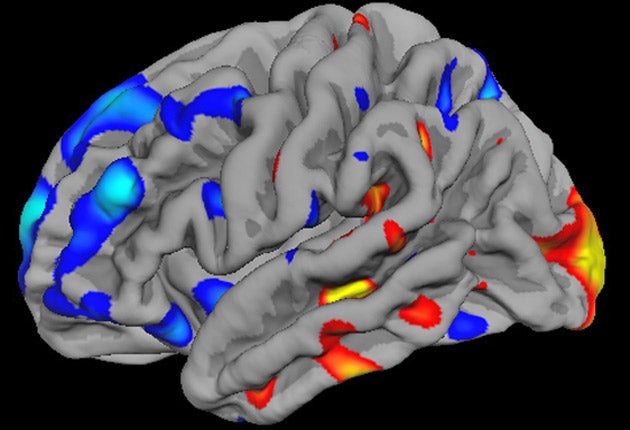Autism: Experiment reveals scientists and engineers are more likely to have autistic traits
Collaboration between Channel 4 and Cambridge University also confirms men are more likely to be autistic than women

People working in science and engineering jobs are more likely to have autistic-like traits than less technical professions according to a nationwide experiment involving nearly half a million members of the public – which also confirmed that men tend to be more autistic than women.
The experiment invited the public to complete an online questionnaire scientifically designed to assess a person’s autistic tendencies with 50 statements such as “I am fascinated by numbers”, “new situations make me anxious” and “I find it hard to make new friends”.
The questionnaire, called the autistic spectrum quotient, was developed by scientists at Cambridge University led by Professor Simon Baron-Cohen as a way a quickly assessing where someone is likely to fall on the spectrum of traits associated with the childhood developmental condition.
Scroll to the bottom of this article to take the questionnaire
Following a collaboration with Channel 4’s flagship programme Embarrassing Bodies: Live from the Clinic, more than 450,000 people from around the UK came forward to complete the on-line questionnaire and the results were assessed by Emily Ruzich, a PhD student at Cambridge’s Autism Research Centre.
The findings, published in the on-line journal Plos One, showed that there was, as expected, no link between autistic traits and either geographical location in the UK or the age of the participants. However, there were significant associations between sex and occupation.
The higher the score, the further along the autistic spectrum someone fell. The average male AQ score was 21.6 compared to a score of 19.0 for females. People who worked in science, technology, engineering or mathematics (Stem) –jobs such as computing or accountancy – scored an average of 21.9 compared to non-Stem workers who scored 18.9 on average.
“Previous studies have found the number of autistic traits a person has is influenced by both genetic factors and prenatal testosterone levels,” said Professor Baron-Cohen.
“These may shed light on why we find males in the population on average have slightly more autistic traits than females do, and why fathers and grandfathers of children with autism are over-represented in Stem fields,” he said.
The Cambridge researchers believe that the findings support the idea that autistic traits are linked to both sex and to having a “systems-thinking mind”, which could explain the why many people working in Silicon Valley and related high-tech occupations tend to exhibit more autistic-like behaviour than the wider population.
“I am pleased that such big data was available to test these questions. They provide clear evidence that autistic traits are sex-linked and Stem-linked and this will encourage further research into why theses associations are seen,” Ms Ruzich said.
Although the autistic spectrum quotient is scientifically designed to provide a rough estimate of how autistic someone is, it is not accurate enough to provide a full clinical diagnosis, explained Carrie Allison, a member of the Cambridge research team.
“[It] is a valuable research instrument and autistic quotient scores correlate with brain structure, brain function, social perception and attention to detail, among other things,” Dr Allison said.
“But it is important to underline that it is not diagnostic. A high score alone is not a reason to seek help. It is only if the high number of autistic traits is causing stress and difficulties that a person may need a referral to a specialist clinic,” she added.
Join our commenting forum
Join thought-provoking conversations, follow other Independent readers and see their replies
Comments
Bookmark popover
Removed from bookmarks